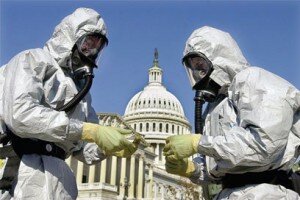
bacillusanthracis.wikispaces.com
The tiny retroreflectors, also used on traffic signs, are generally sewed on to runners’ shoes to maximise night visibility.
Richard Willson, project research leader, said: "Our goal is the development of an ultrasensitive, all-in-one device that can quickly tell first-responders exactly which disease-causing microbe has been used in a bioterrorism attack."
Willson explained early detection of bioterrorism is possible with signs of infection caused by multiple agents as spotted by this instrument.
This development could “greatly enhance our response to a possible bioterror attack or the emergence of a disease not often seen here".
HumanIPO reported earlier this year on stargazing software’s use in the detection of breast cancer.
The team of scientists are also looking into developing the device for doctors’ offices, which will give patients access to immediate test results without laboratory time required for examination.
General infectious diseases such as cruise ship sickness and stomach bugs can be identified early enough to act upon before illness occurs.
Balakrishnan Raja, a member of Willson's team at the University of Houston (UH), said the device is “the most visually detectable devices ever made by human,” News24 reported.
There are seven channels in the device.
"So we can test for seven different infections at once, but we could make more channels. That's one of our long-term goals - to multiplex the device and detect many pathogens at once," Raja said.
The instrument was clinically proven with tests on the Rickettsia conorii, which causes Mediterranean spotted fever, among other samples.
The reflectors made the agenda among 12,000 other discussed topics at the meeting.





















































